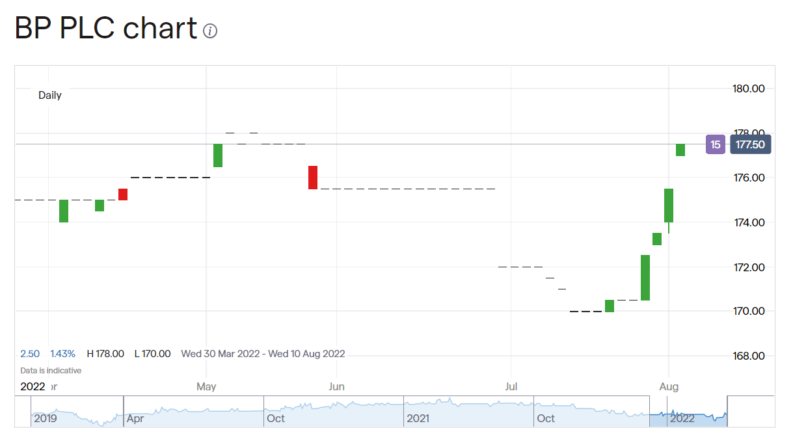Key points:
- BP's Q2 operating profits are very good, the dividend's up, share buybacks
- Refining profits are a core driver here
- But overall there's still a loss for 1H, the costs of Rosneft
BP (LON: BP.) shares are up 4% on the news that it lost over $10 billion in the first half year of 2022. That's not how most are going to report it, of course, but it is the number that actually matters. The pity about most not reporting it this way is that the biggest threat to BP, as with the other oil majors, is political. What people think is true about BP, as with other fossil fuel companies, is therefore what matters, not the actual truth. And that actual truth is that operating results were excellent, as we'd expect in a time of strong oil prices. But the final results were terrible as a result of the Russian problems. It's the final results that actually matter of course.
BP's operating results can be presented in a number of different ways, historic cost, replacement cost and so on. For an oil company replacement is probably the best and that's up to $7.6 billion. This is largely a result of the high oil price, yes, but it's the effect of that upon refining margins that is the real impulse.
The dividend is increased 10% to 6 cents and change per share. That's the quarterly dividend, of course. There's also the announcement of a further $3.5 billion share buyback which has already started this morning. The other major point is a reiteration of the basic finances of the business. 60% of surplus cashflow – the amount earned over the need to reinvest – will be paid out to shareholders in dividends and buybacks, the other 40% used to strengthen the balance sheet. That is, pay down debt.

Also Read: How To Buy BP Shares
The big threat to BP, as to the other oil majors, is actually the imposition of a windfall tax upon them. Of course the UK has already tried to do this but in reality this hasn't had much effect due to its construction. The allowances for investment inside the UK – and the tax applying to UK revenues – mean that the two largely offset each other. But there's always the possibility that the populists win and manage to impose some substantial and effective tax upon oil profits. That this would be silly – taxing supply at a time of dearth is not sensible – doesn't change the political pressure for it.
It's also possible to wonder about the oil price, that driver of the rise in operating profits. Few are seeing any quick resolution to the Ukrainian matters and any relaxation of sanctions upon Russia looks further away than that. It is though worth noting that it's not the oil price per se which drives BP profits – governments get most of the rise in that. It's the change in crude and refined products balances which are driving refinery profits that really matters here and that looks unlikely to change for even longer.
BP's operating profits are good, very good, they're returning money to shareholders by the bucketful. But it is still true that they lost well over $10 billion in the first half of this year – the costs of disengaging from Rosneft. The biggest risk is a windfall tax which is a neat pairing with the cause of that loss – political risk.




